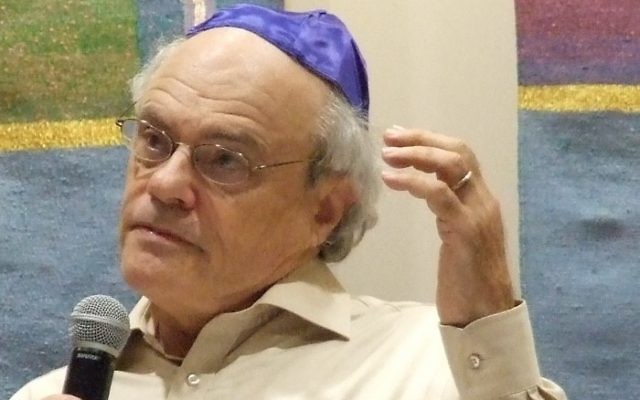CIE: Teaching Israel’s History, Not Someone’s Narrative
By Ken Stein | Center For Israel Education, Emory University
When I studied at the University of Michigan, I took courses in history. I never took a course in Middle Eastern, British or Israeli narrative.
Today, narratives and bias tend to replace histories, particularly when topics of emotion and controversy are taught.
History is the study of the way it was. Telling it is often complicated, time-consuming and nuanced. It requires blending different sources and proven facts into one story.
Narratives, on the other hand, usually contain highly charged terms, claims and pre-selected views. They are reflected in articles, books and blog posts aimed at generating one-sided marketable viewpoints.
This biased written matter is assigned to students to read in college courses.
When one-sided readings, for which Israel is the target, appear in syllabi, the objective is frequently to undermine Israel’s legitimacy. It is sometimes a professor’s or teacher’s goal to turn Israeli supporters or the unknowing student into opponents not only of Israeli policies, but also of Israel’s right to exist.
That is the core of boycott, divestment and sanctions.
Examples abound in college courses where Israel is a topic and anti-Israel narratives are assigned readings (type into your browser “anti-Israel courses” and choose a school). This past summer, we did our own research at the Emory Institute for the Study of Modern Israel (www.ismi.emory.edu).
We reviewed 139 syllabi offered at more than 85 North American colleges and universities. These syllabi had in their titles the terms Middle East Politics, Arab-Israeli Conflict, Israel, Zionist and Palestinian.
Admittedly, we were not able to collect every syllabus from every school. But from our sampling, nearly 25 percent of the course syllabi were either moderately or highly anti-Israeli in either assigned readings or topics chosen by the teacher or professor.
When courses are given at colleges or in private or public high schools with anti-Israeli viewpoints, what is the unsuspecting student to do?
Look closely at the syllabus before signing up for the course. If it’s in high school, appeal to a principal or Board of Education member. Or take the syllabus to experts and have them debunk and rewrite the contents.
In college that is more difficult to do because professors have an absolute say on what they assign to students. College administrators and board members avoid imposing their values on faculty classroom decisions.
An obvious antidote to the impact of anti-Israeli courses on campus is to increase substantive Israel education before students arrive at college. In working with thousands of Jewish teachers (80 from Atlanta) and Jewish students through our Center for Israel Education, we have found that telling Israel’s story with all its complexities works for students and teachers alike (israeled.org/workshop-evaluations).
Two anecdotes reveal contemporary realities about Jewish students after they get to campus.
The first is about a student who grew up in a practicing Jewish environment in an American Southern city where going to shul happened a few times a year. Shabbat was occasionally practiced, and some Jewish holidays were observed.
The second is about a West Coast student who took a high school course on modern Israel at a Jewish day school. Coincidently, both students ended up at Ivy League schools.
The first student took a course from a particular professor whose career has been marked by not being a fan of Israel’s policies toward the Palestinians. After writing an opinion column in the school newspaper that was highly critical of Israel, the student sent a copy of it to relatives in Israel; consequently, the Israelis disinvited the student as a summer house guest.
The upset parents wondered whether there was remedial learning that could be undertaken to straighten out the student. I had no answer.
No conclusion is known about what happened with the student’s outlooks, but we strongly assume that the faculty member probably had a direct impact on the student’s critical views of Israel, which the parents were not anticipating.
After taking the course on modern Israel at the West Coast day school, the second student was sitting in a freshman college class. He was somewhat baffled by the professor’s assertion that the Jews had taken all the land from the Arabs.
The student told the professor that he was wrong about the spurious claims about Israel being an apartheid state. And the professor listened as the informed student explained to the class about the details learned in that Israel history class at the day school.
The student later wrote to the day school teacher, recounting the incident. “I just wanted to let you know how grateful I am for your teaching me this material. I no longer have the feeling of a lonely, helpless, freshman Jew on campus who is afraid to speak out.”
As we enter the new year, let’s commit ourselves to diligently telling Israel’s story to our children and only then responding to the narratives thrown at Israel. The best defense is a great offense.
Ken Stein, who teaches Middle Eastern history, political science and Israeli studies at Emory, is the president of the Center for Israel Education and the director of the Institute for the Study of Modern Israel.





comments